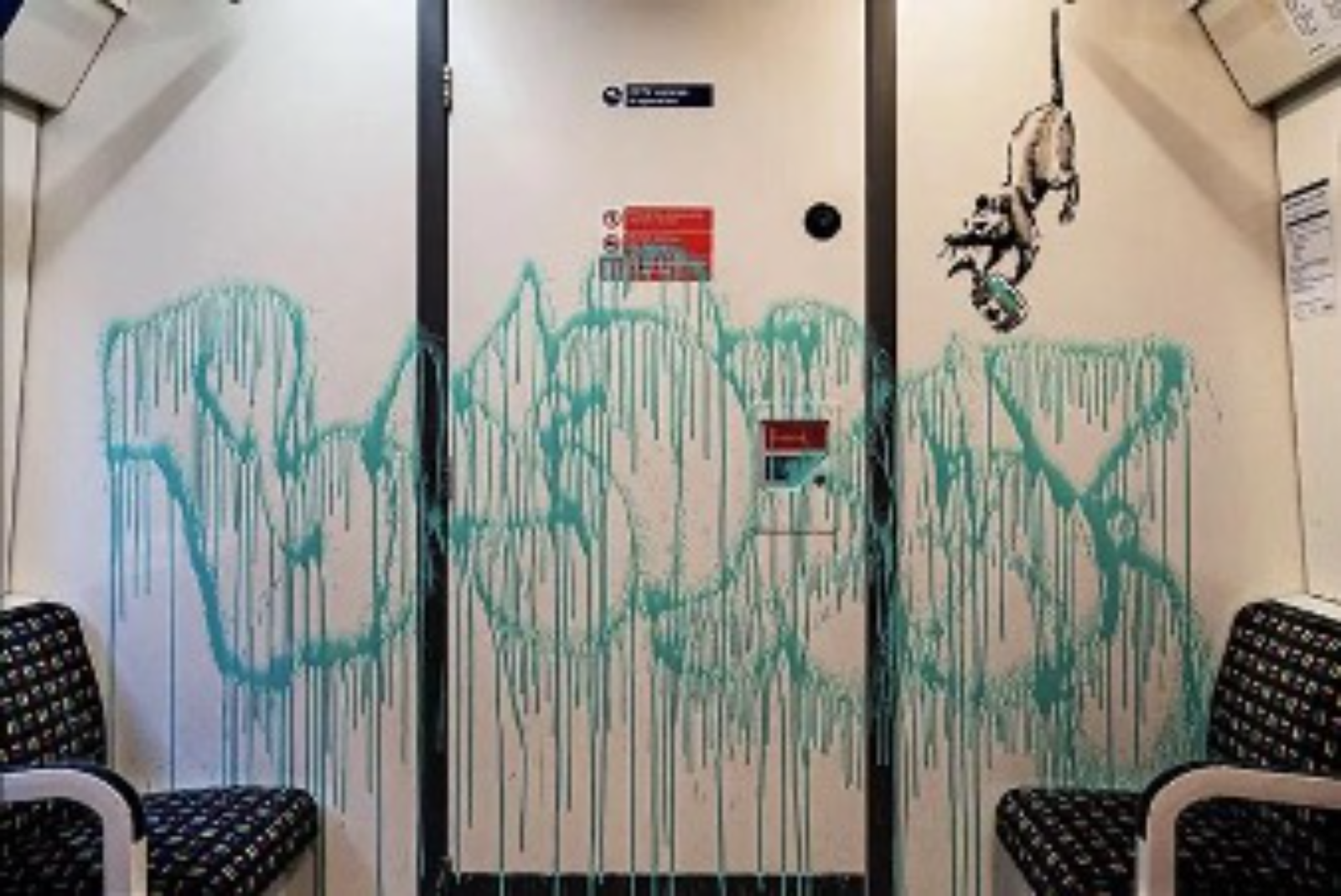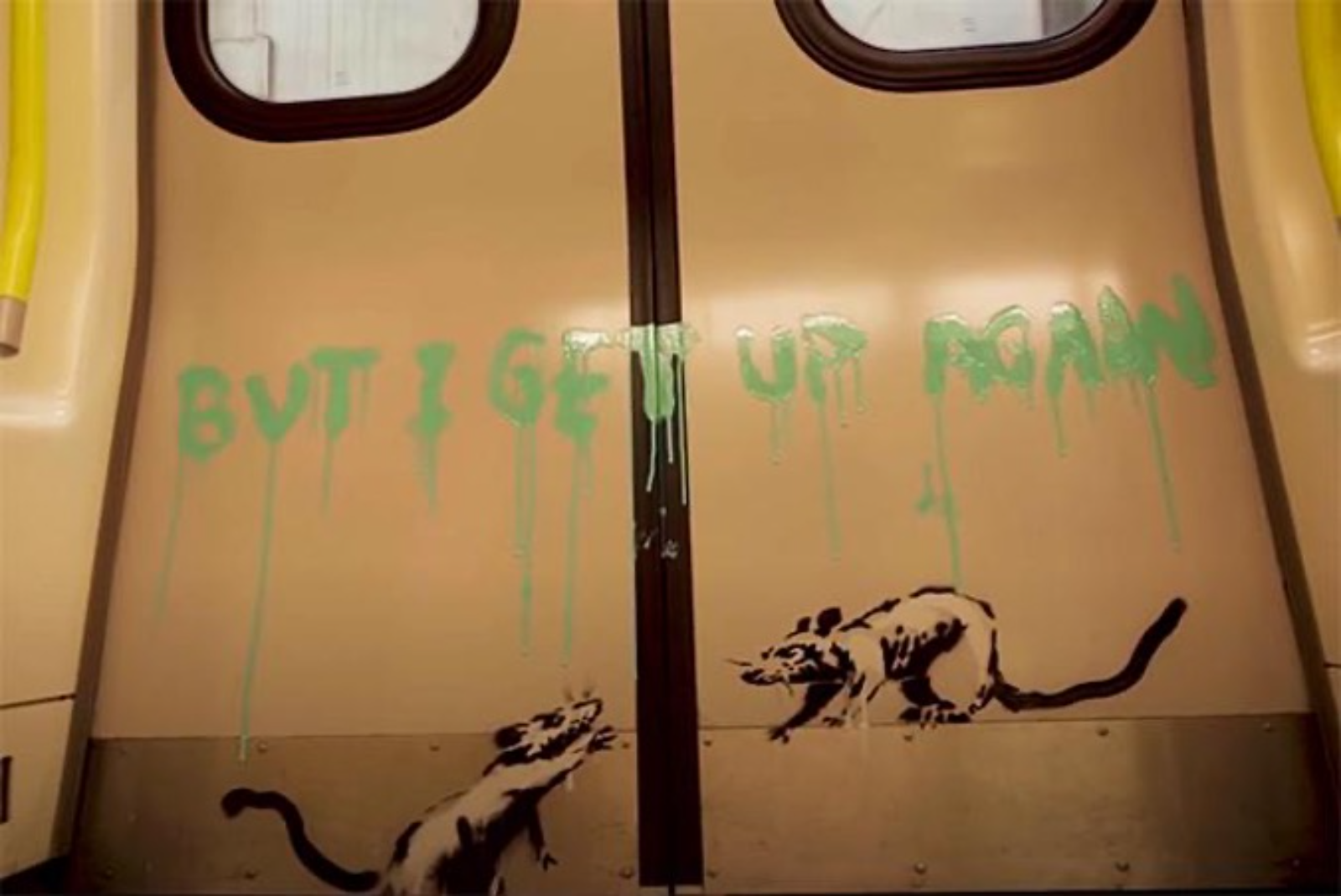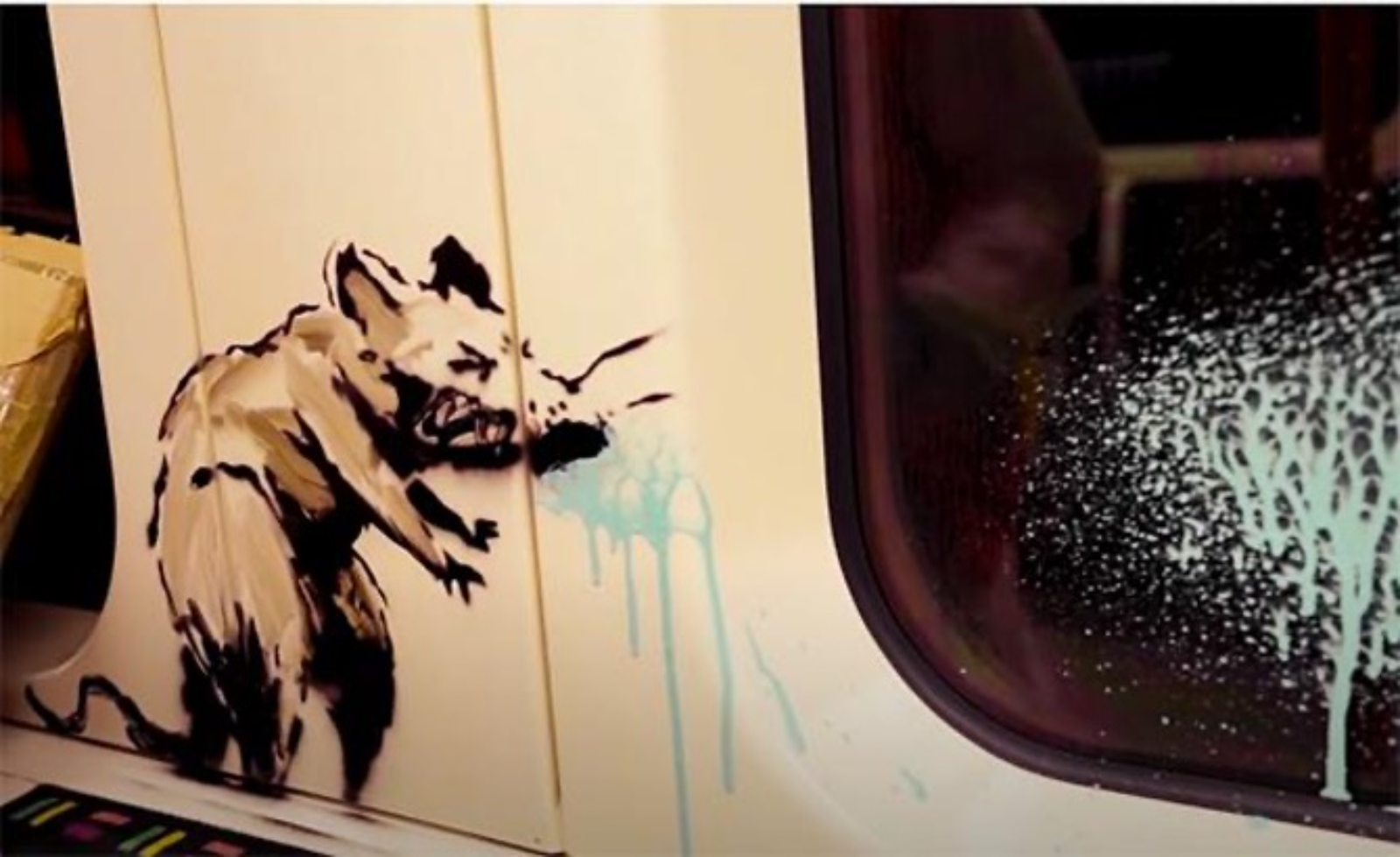If You Don’t Mask, You Don’t Get was a mural created by Banksy in 2020. Less than 24 hours after Prime Minister Boris Johnson announced the face mask mandate on public transport starting from the 24th of July, Banksy unveiled this public installation on the London Underground. The work blends graffiti aesthetics with public health messaging, intends to encourage the wearing of face masks during the COVID-19 pandemic. Like most of the works from the pseudonymous English-based street artist, If You Don’t Mask, You Don’t Get, positions itself at the intersection of art, activism, satire, and social engagement. A video on Banksy’s Instagram shows the artist disguised as a professional cleaner, spraying paint and stencilling rats on the inside of the tube carriage. The rats are a recurring motif in Banksy’s oeuvre, and are being used here to embody both chaos and adaptability during the coronavirus crisis. The finished mural portrays an unmasked rat sneezing spray paint across the carriage whilst other masked rats use face masks as parachutes. On the driver’s door of the carriage, another rat holds a bottle of hand sanitiser to leave the tag “Banksy” in cyan. Towards the end of the video, the words “I get lockdown” appear on the side of a station wall before the doors close to reveal the phrase “but I get up again” on the closing doors of the carriage (a lyrical reference to the 1997 song “Tubthumping” by British anarcho-punk band Chumbawamba), expressing resilience amid disruption.
Originated in the 1960s, street art is inherently a political form of expression, rooted in reclaiming public space and resisting institutional control. Characteristically made for public visibility, its guerrilla execution and message are often accompanied by subversive intention. However, the illegitimacy and ephemeral nature of such works also highlighted the tensions between grassroots expression and institutional bureaucracy—shortly after installation, the mural was removed due to Transport for London’s anti-graffiti policy. The irony demonstrates the controversial nature of the medium—a clear public health message that ultimately faces bureaucratic rigidity, making the artwork only a temporary, guerrilla-style intervention once it appears during the pandemic.
 ,
,  , and
, and 
Image Captions:
Image 1. Banksy. If You Don’t Mask, You Don’t Get. 2020. Stencils and spray paints on public occasions. London. Image via https://entergallery.com/blogs/news/if-you-dont-mask-you-dont-get-banksy-goes-underground?srsltid=AfmBOopO2w_vYjSj6Lhxuen5-Yy7YU1V8jDKOxE8_DnKQPf704OPWk1i.Image 2. Banksy. If You Don’t Mask, You Don’t Get. 2020. Stencils and spray paints on public occasions. London. Image via https://banksy.co.uk/.
Image 3. Banksy. If You Don’t Mask, You Don’t Get. 2020. Stencils and spray paints on public occasions. London. Image via https://banksy.co.uk/..
Citation: Banksy. If You Don’t Mask, You Don’t Get. 2020, London. NON-FICTION, VISUAL ART | UK. yc
Source Type: Visual Art
Country: UK
Date: 14-Jul-2020
Keywords: Banksy, Graffiti, Lockdown, Mask Mandate, Public Health, Public Space, Social Commentary, Street Art, and UK